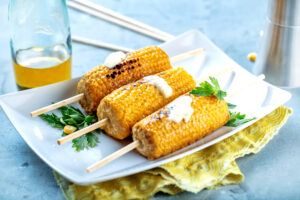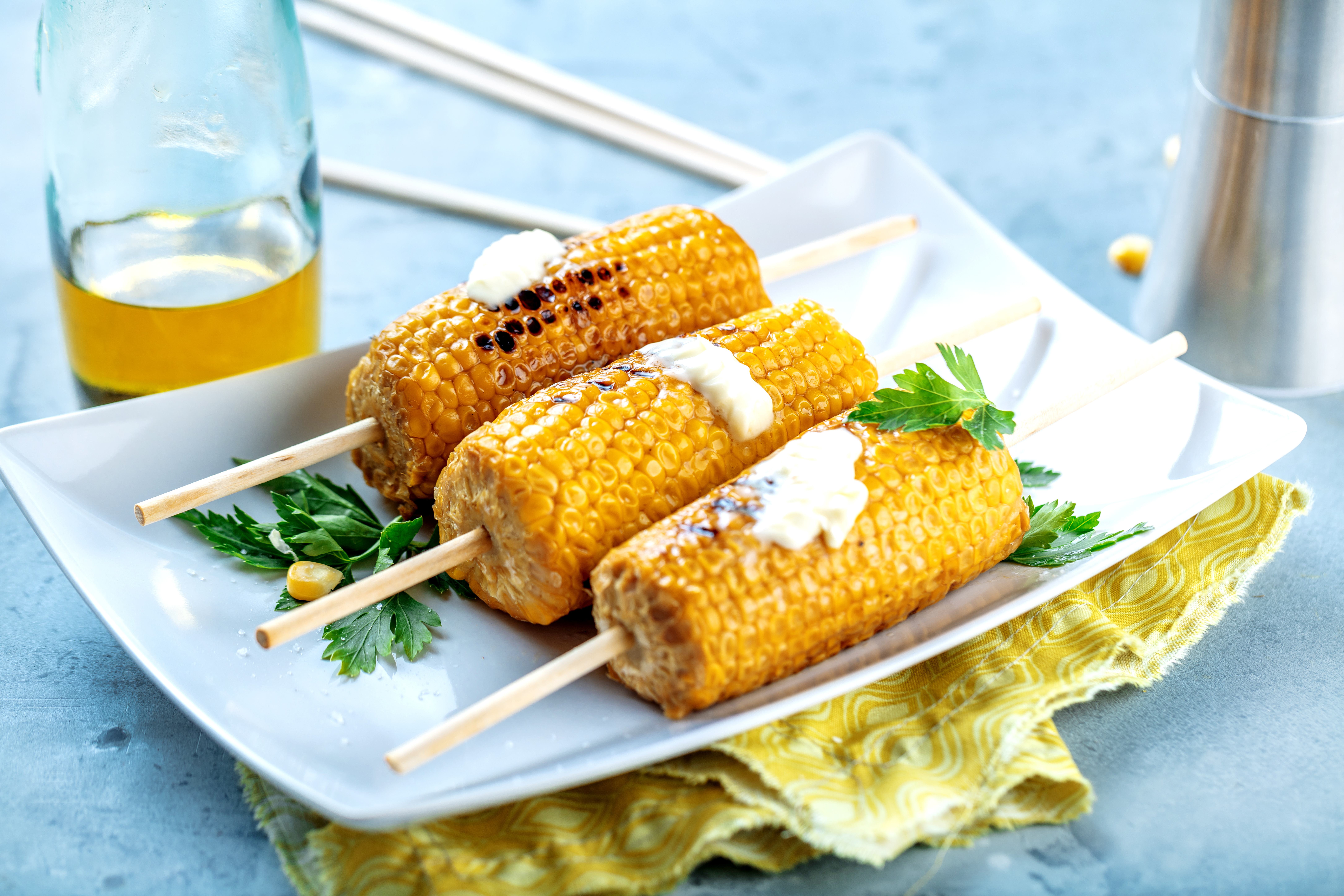
Butter is a product used by many people to prepare a variety of meals. It is normally made by churning cow milk. This churning process separates the butterfat from the buttermilk. However, there are different versions made from the milk of sheep, goat, yak, or buffalo. There is also sweet cream butter, which is different altogether. You can use butter to make anything from eggs to pasta. Even though butter has proven to be very useful, does not mean that it is good for you. So, we have to ask the question. Is butter healthy to cook with?
Nutritional Facts
Butter is mainly composed of fat with about 12 grams per tablespoon. This breaks down into about 7 grams of saturated fat, 0.4 grams of polyunsaturated fat, 3 grams of monosaturated fat and 0.5 grams of trans fat. This makes butter about 80% fat. That isn’t very comforting if you ask me. It is fairly complex as far as dietary fats go, with over 400 different fatty acids. So, that tablespoon of butter is going to cost you about 100 calories. It also consists of 31 mg of cholesterol, 2 mg of sodium, 3 mg of potassium and only 0.1 g of protein. On the upside, it will provide you with Vitamin A and Vitamin D. Vitamin A is the most present in this product, with 1 tablespoon providing about 11% of your Reference Daily Intake (RDI). Vitamin A helps to maintain teeth health, as well as soft tissue, white blood cells, and your immune system. Vitamin D is essential to maintaining healthy bones by regulating calcium and phosphorus levels in the blood. It also provides small amounts of Vitamins E, B12 and K2. Vitamin E is beneficial to your immune system. It helps to prevent coronary heart disease, as well as strengthens eye health and lowers the risk of cancer. Vitamin B12 contributes to your body producing red blood cells and helps to prevent Anemia. Finally, Vitamin K2 helps to regulate calcium deposition. This furthers the question, is butter a healthy choice to cook with?
Types of Butter
Sweet Cream Butter
– You can find sweet cream butter in pretty much any dairy section of any grocery store. They normally have an option of either salted or unsalted versions. The organic versions of these are typically better to use because the cows have not been exposed to pesticides or harmful chemicals.
Grass-Fed Butter
– This butter comes from cows that have been grass-fed as opposed to commercial grain-based feeds. This type of butter provides much better fuel for your body. These cows produce milk with more healthy fats and fat-soluble vitamins, such as a better omega-3 to omega-6 ratio as well as many fewer toxins. Overall, it is a much healthier product to cook with.
Cultured Butter
– Cultured butter is made by adding live bacteria before the beginning of the churning process. This gives the butter a much higher fat content but also gives it a much richer taste. However, it does help with digestion, for those who fear dairy products because they make their stomach hurt. It also comes with salted and unsalted versions, but my advice to you is to go unsalted and then add your desired amount of salt during the cooking process. Cultured butter is also fantastic for baking.
Whipped Butter
– This type of butter has milk and air whipped into it. This makes it much fluffier than traditional butter. It melts and spreads very easily and it is also fairly simple to make at home. You can also stretch butter that you already poses, this makes it great for large gatherings. The stretching of the butter makes it a bit lower in saturated fats and calories. Whipped butter may just be the way to go!
Compound Butter
– Compound butter is butter that adds spices such as, fresh herbs, garlic or paprika. Basically, whatever your heart desires. There are no specific downsides or benefits to this type of butter. It just depends on what you would like to add to it.
Brown Butter
– When you heat butter in a hot pan, the water evaporates out. You will see this happening, for it will bubble away during the process. The butter will turn much darker. This butter is great for making pasta or cookies. Really it will make anything you normally eat butter with several times better.
Vegan Butter
– Vegan butter is butter that has no animal products in it. It is made with a blend of vegetable oils, plant-based milk, vinegar, salt, nutritional yeast and turmeric (which is great for maintaining bone health). It is still high in calories and saturated fat. This means it is just as bad as traditional butter, but it’s vegan.
How is Butter Used
Butter is used to cook a variety of dishes such as pasta, eggs, chicken, and asparagus. It can also be used as a spread for your morning toast or bagel, as well as a pancake or waffle. Furthermore, it is pretty much essential in baking. However, it is not good to use in any dish that requires high-temperature searing. You should also avoid using it when cooking tortillas or tamales, it makes them much too moist. Finally, avoid using butter when you are greasing a pan. The high-water content will make the butter evaporate much to quickly and whatever you are cooking will stick to the pan. It is a much better idea to use oil or a cooking spray. However, the question still stands, is butter healthy to cook with?
Healthy or Unhealthy
So, after all of these facts, you may still be wondering if butter is a healthy cooking choice. I would say it depends on the kind of butter that you are using. If you find a good grass-fed butter it will be much better for you then a sweet cream butter. However, even with that said butter needs to be used in moderation for it is high in calories and saturated fat. Good substitutes for butter include ghee, coconut oil, and olive oil. Margarine is not a good substitute for butter. All of this information may seem a little overwhelming but have no fear. Eat your butter alongside heart-healthy foods and you should be ok.
